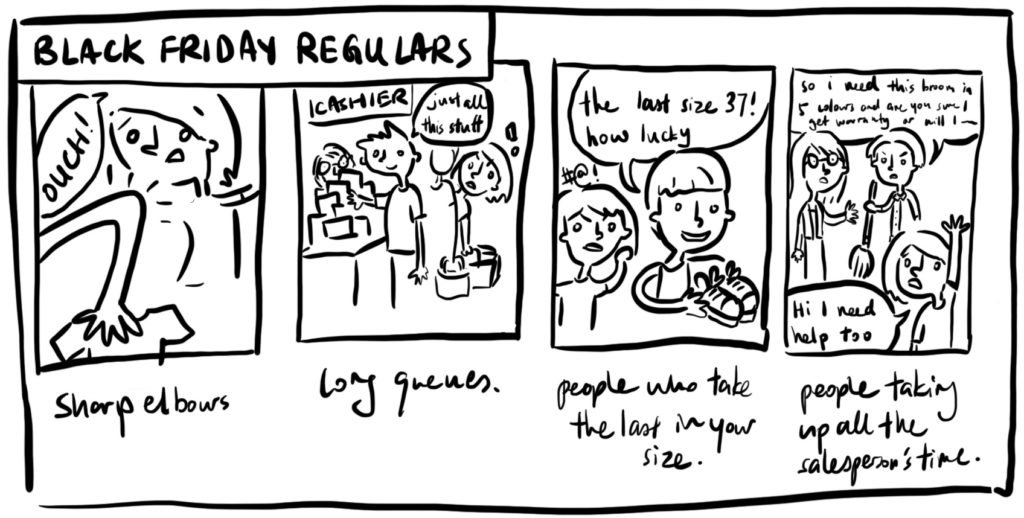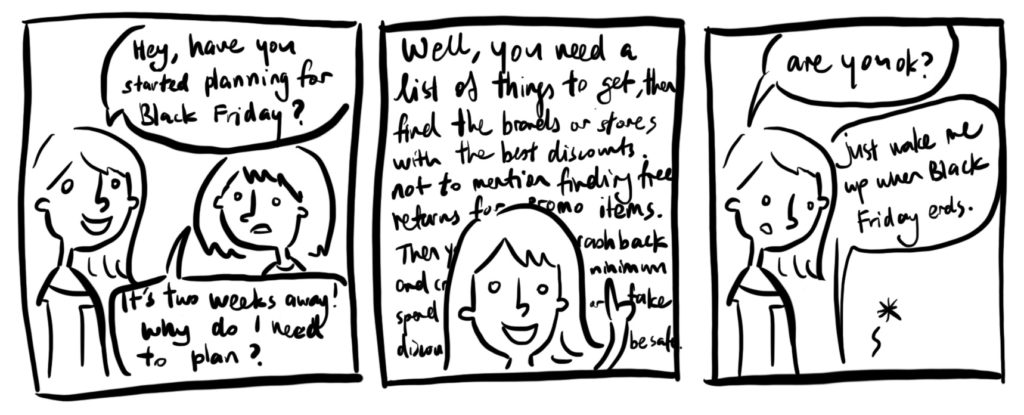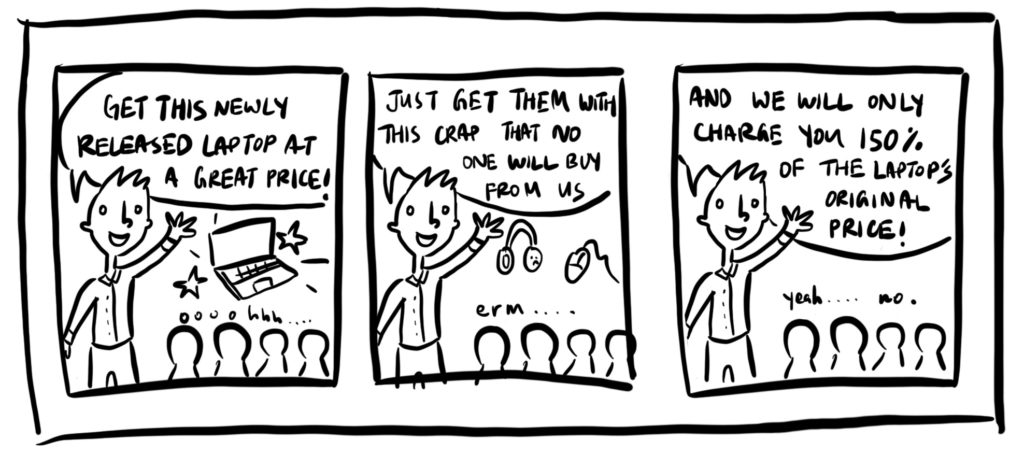Budgeting | Personal Finance | Article
Sale Season is Brutal AF
by Annie | 10 Dec 2019 | 6 mins read

I hate Black Friday.
I also hate Singles Day, Cyber Monday, and any hyped ‘shopping festival’ you can think of.
It’s my own fault. I’m what you would call an impulse shopper. When I decide that I need want something, I’m going to a store and buying it. Or, even better, I like walking into a store, seeing something that catches my eye and whipping out my credit card on the spot.
Unlike some shoppers, I don’t have a list of things that I wait patiently on for sale season to roll around, so I can purchase them all at a go and relish in the savings I’ve made, like a coupon-cutting Scrooge McDuck.
You have to admit, sale season is brutal. Wandering into a store during this period only guarantees bodily assault. Aggressive aunties with bony elbows that poke into your side and hands that grab at the speed of light; nonchalant tourists who lack the urgency of the crowd to get in and out quickly, and confused shoppers monopolising all of the sales assistants’ time and energy are just some of my foes.On top of that, the items I actually want are either not on sale or are packaged in deals that don’t work to my benefit.
Online shopping isn’t much better, as sales now often begin at midnight and unless you’re willing to forego sleep, or had the foresight to take leave from work the next day (seriously, people do this), your desired item is often sold out by the time you roll out of bed.
If the shop floor is a battleground, online shopping is guerilla warfare, where the enemies are invisible and attack when you’re asleep. That jacket you’ve been eyeing for months? Well too bad, it sold out a few seconds before your page even loaded.

Despite my bitterness about sales, I’m still drawn to the amazing prices. I’m human after all. Beyond the chaos lies a promised land of insane deals and great savings. But where others see a land of opportunity, I see a minefield threatening to blow up my wallet.
Even when deals are sold out and I miss the midnight boat, I still find myself buying stuff. Stuff that I didn’t necessarily need or want, but I buy them anyway, because the prices were just too good. Regret usually sinks in before the month is up.
What’s going on here?
Speaking to friends, I realise that navigating sale season requires a certain level of diligence.
One friend, V, does her research in advance. She reads articles, scours social media and online forums to find out what department stores, online marketplaces, and boutiques are planning to offer weeks before Black Friday arrives.
A cautious shopper, she even researches the stores that have generous return policies that cover sale items to avoid the shopping regret trap I so often find myself in.
Another friend, J, has his shopping list ready before sale season hits, and does his due diligence to find the best deals for those items. Like a bloodhound, you can be sure he will hunt down the online store selling it for the lowest price across the entirety of the Internet.
It takes work to be thrifty. As a self-professed lazy shopper, this fact doesn’t sit well with me.

FOMO (or ‘fear of missing out’) is often the sentiment that pushes people to buy things that they’d no intention of purchasing. An article by Alizila, a publication under the Alibaba group (and the culprits behind Singles Day), explains that FOMO is a result of the expiring nature of sales. It invokes a sense of scarcity, which signals danger to the deepest levels of human instinct.
But this isn’t a tribe of hundreds fighting over the last piece of meat to survive. This scarcity is manufactured by retailers who bet on our FOMO for profit. If you take a step back to think about it, the scarcity might not be real.
For one, Black Friday does not always guarantee the best prices. There are several sale seasons throughout the year that vary according to the part of the world you live in.
In Singapore, we have the Great Singapore Sale, albeit an event that has lost its lustre. Many retailers also set their own sale schedule and events. For example, online fashion retailer Zalora holds a 12.12 sale to rival Singles Day.
Furthermore, items that go on sale may not offer great value in the long run. Unless you’re stocking up on daily-use items like household goods and groceries, the most coveted items, such as fashion and electronics, are often replaced by trendier or upgraded versions eventually.
Most businesses make use of sale seasons to clear old inventory in high volumes. So the products put on sale are often less desirable items that couldn’t sell at regular price. This tactic is also employed just before a new product launches, during which old models are more difficult to offload.
The Amazon Echo Dot retailing for US$25 in this year’s Black Friday sale will likely be replaced by a newer, more advanced model in next year’s sale for a similar price. So the question is, do you really need it now or are you willing to wait?

Bundling is also a trick that businesses use to sell unpopular products by dangling the lure of a popular product. For example, this year’s sale saw a Dyson V8 vacuum cleaner paired with the less popular Dyson fan, sold at an attractive bundled price, but unless you love the Dyson fan, you are going to be stuck with a product you didn’t really want just to get a great vacuum cleaner.
So does this mean that sales are evil and we’re doomed to be suckered into buying crap we don’t want or need? Absolutely not. To navigate the perils of shopping festivals, all you need is conscientiousness and discipline.
Don’t get mindlessly swept up by the lure of slashed prices or the threat of “while stocks last”. Avoid the false scarcity trap by thinking: “If I don’t buy this item, what’s the worst that can happen?”
Plan your buys. Set up a budget to avoid overspending. And most of all, try to understand how businesses think. Be aware that you may be buying last season’s items, and factor that into your decision-making process.
Retail moves fast, and sales come and go, but your money doesn’t have to do the same. Make each purchase count, especially during sale season, and you’ll get past the landmines just fine.














